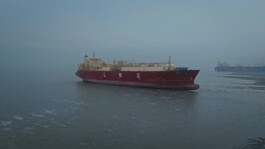
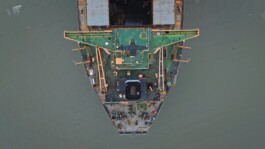
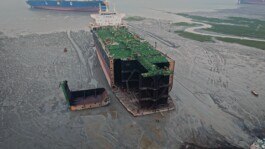
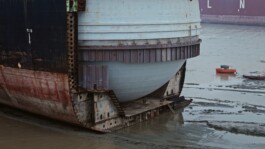
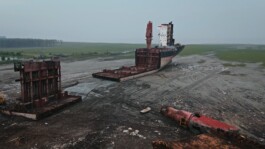
Shot in the ship-breaking yards of Chittagong, Bangladesh, the film tracks decommissioned super-tankers as they are beached, cut open, and cannibalised by hand. A spoken adaptation of Rimbaud’s “The Drunken Boat” (1871) drifts over the imagery, its visionary voyage now reversed: the vessel has reached shore only to be dismembered.
Here, the “dirty secret” of global trade is laid bare—pollution and precarity outsourced to the Global South, while wealth sails elsewhere. The film closes the exhibition on a note of reckoning: every tanker’s epic begins and ends with bodies—of water, of ships, of people—strained to the breaking point.
Commissioned by Berlinische Galerie 2025





Shot in the ship-breaking yards of Chittagong, Bangladesh, the film tracks decommissioned super-tankers as they are beached, cut open, and cannibalised by hand. A spoken adaptation of Rimbaud’s “The Drunken Boat” (1871) drifts over the imagery, its visionary voyage now reversed: the vessel has reached shore only to be dismembered.
Here, the “dirty secret” of global trade is laid bare—pollution and precarity outsourced to the Global South, while wealth sails elsewhere. The film closes the exhibition on a note of reckoning: every tanker’s epic begins and ends with bodies—of water, of ships, of people—strained to the breaking point.
Commissioned by Berlinische Galerie 2025